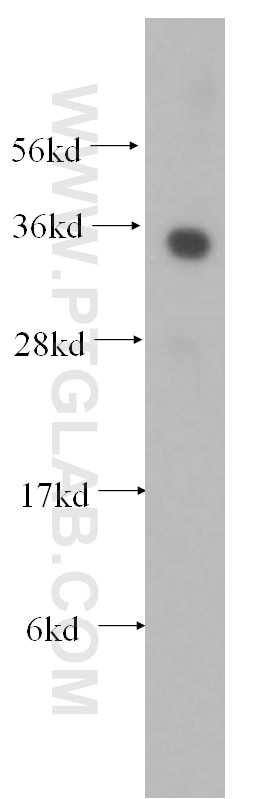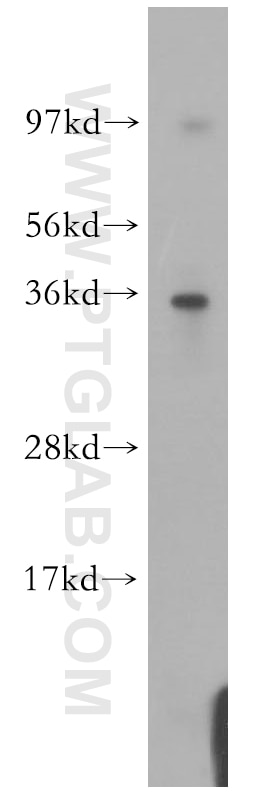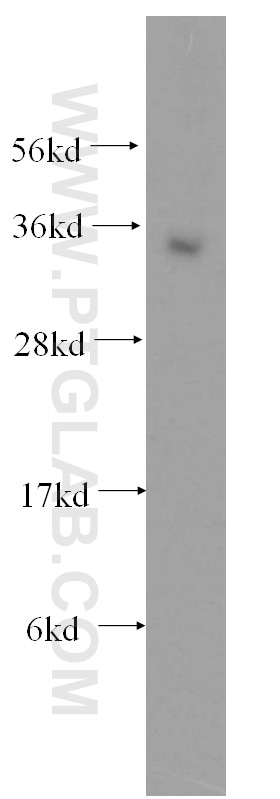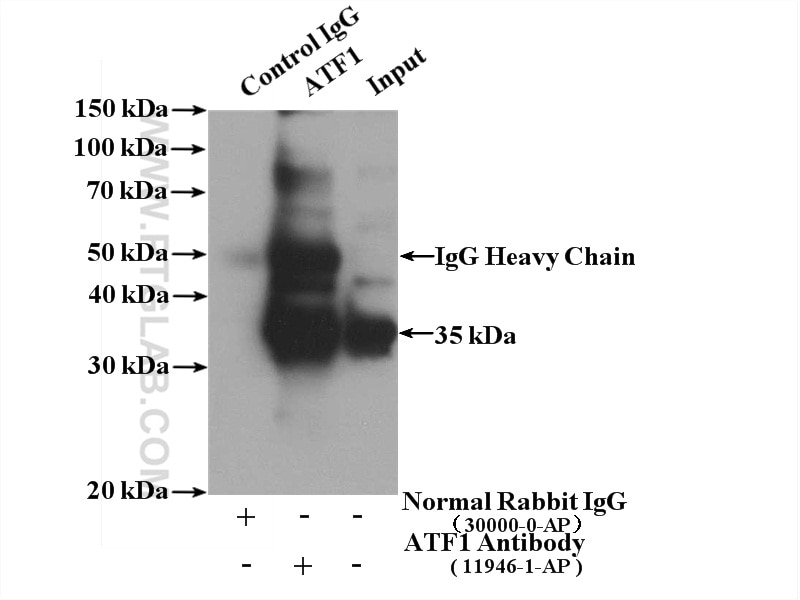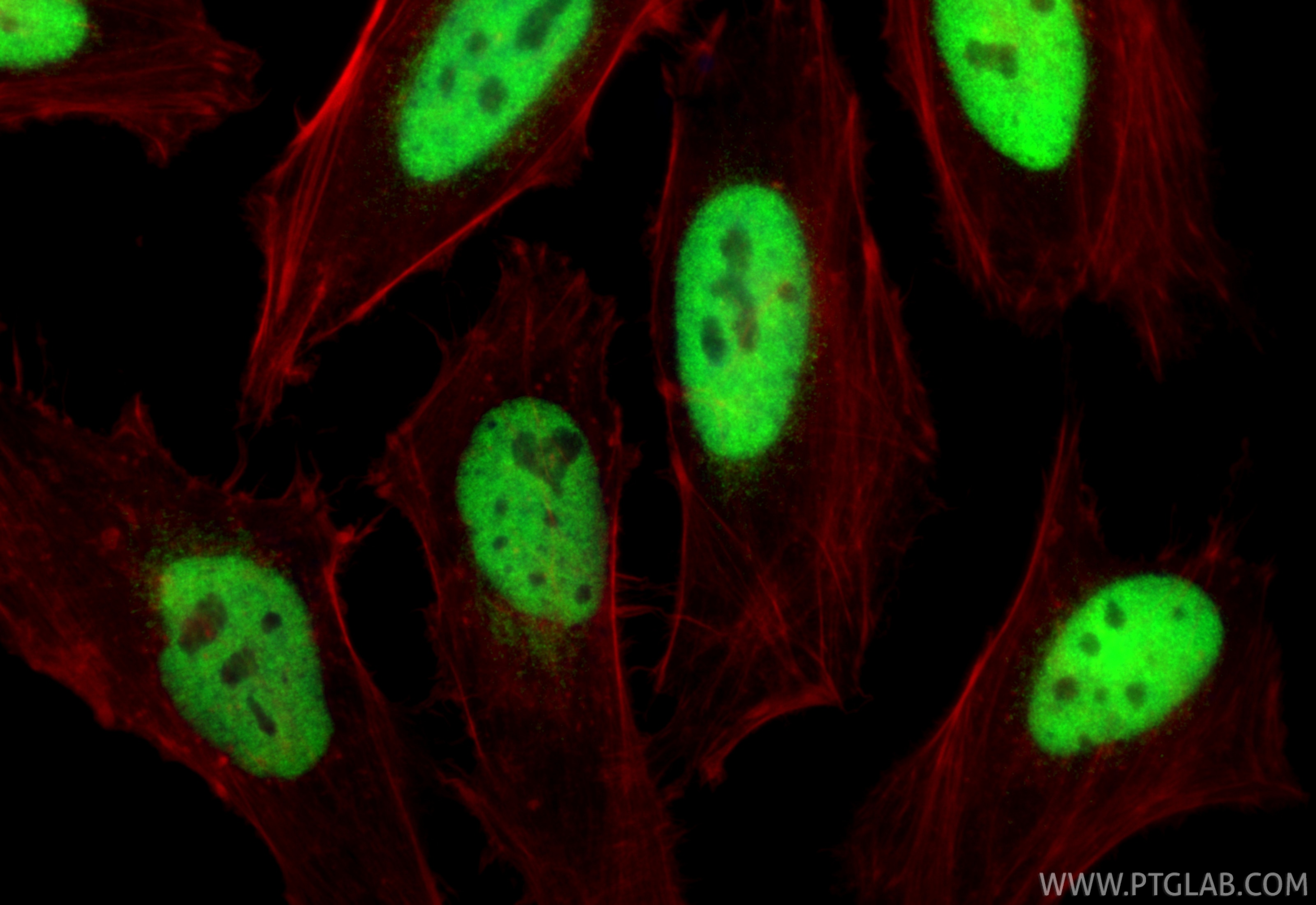- Phare
- Validé par KD/KO
Anticorps Polyclonal de lapin anti-ATF1
ATF1 Polyclonal Antibody for WB, IF/ICC, IP, ELISA
Hôte / Isotype
Lapin / IgG
Réactivité testée
Humain et plus (1)
Applications
WB, IHC, IF/ICC, IP, ELISA
Conjugaison
Non conjugué
N° de cat : 11946-1-AP
Synonymes
Galerie de données de validation
Applications testées
| Résultats positifs en WB | cellules HeLa, cellules A431, tissu cérébral humain |
| Résultats positifs en IP | cellules HeLa |
| Résultats positifs en IF/ICC | cellules HeLa, |
Dilution recommandée
| Application | Dilution |
|---|---|
| Western Blot (WB) | WB : 1:500-1:1000 |
| Immunoprécipitation (IP) | IP : 0.5-4.0 ug for 1.0-3.0 mg of total protein lysate |
| Immunofluorescence (IF)/ICC | IF/ICC : 1:500-1:2000 |
| It is recommended that this reagent should be titrated in each testing system to obtain optimal results. | |
| Sample-dependent, check data in validation data gallery | |
Applications publiées
| KD/KO | See 4 publications below |
| WB | See 10 publications below |
| IHC | See 1 publications below |
Informations sur le produit
11946-1-AP cible ATF1 dans les applications de WB, IHC, IF/ICC, IP, ELISA et montre une réactivité avec des échantillons Humain
| Réactivité | Humain |
| Réactivité citée | Humain, souris |
| Hôte / Isotype | Lapin / IgG |
| Clonalité | Polyclonal |
| Type | Anticorps |
| Immunogène | ATF1 Protéine recombinante Ag2548 |
| Nom complet | activating transcription factor 1 |
| Masse moléculaire calculée | 271 aa, 29 kDa |
| Poids moléculaire observé | 35 kDa |
| Numéro d’acquisition GenBank | BC029619 |
| Symbole du gène | ATF1 |
| Identification du gène (NCBI) | 466 |
| Conjugaison | Non conjugué |
| Forme | Liquide |
| Méthode de purification | Purification par affinité contre l'antigène |
| Tampon de stockage | PBS with 0.02% sodium azide and 50% glycerol |
| Conditions de stockage | Stocker à -20°C. Stable pendant un an après l'expédition. L'aliquotage n'est pas nécessaire pour le stockage à -20oC Les 20ul contiennent 0,1% de BSA. |
Informations générales
TFs play a vital role in maintaining cell homeostasis by combining DNA regulatory sequences to regulate gene transcription rates. Activating transcription factor 1 (ATF1) is a member of the ATF/CREB family of transcription factors (TFs), specifically interacting with the consensus ATF/CRE site 'TGACGTCA'(PMID: 28032861). ATF1 transcriptionally regulates the expressions of target genes to mediate various cellular processes, and ATF1 effects the progression of tumors (including lung cancer, colorectal cancer,and nasopharyngeal carcinoma).
Protocole
| Product Specific Protocols | |
|---|---|
| WB protocol for ATF1 antibody 11946-1-AP | Download protocol |
| IF protocol for ATF1 antibody 11946-1-AP | Download protocol |
| IP protocol for ATF1 antibody 11946-1-AP | Download protocol |
| Standard Protocols | |
|---|---|
| Click here to view our Standard Protocols |
Publications
| Species | Application | Title |
|---|---|---|
J Adv Res Transducin-like enhancer of split 3 protects against lipopolysaccharide-induced inflammation through DDX5-ATF1-PPP2R5A signaling | ||
Am J Hum Genet Systematic Functional Interrogation of Genes in GWAS Loci Identified ATF1 as a Key Driver in Colorectal Cancer Modulated by a Promoter-Enhancer Interaction.
| ||
Mol Ther Nucleic Acids Mbd2 deficiency alleviates retinal cell apoptosisvia the miR-345-5p/Atf1 axis in high glucoseinjury and streptozotocin-induced diabetic mice. | ||
Front Cell Dev Biol CREB1 and ATF1 Negatively Regulate Glutathione Biosynthesis Sensitizing Cells to Oxidative Stress.
| ||
J Biol Chem The mRNA levels of heat shock factor 1 are regulated by thermogenic signals via the cAMP-dependent transcription factor ATF3. |
